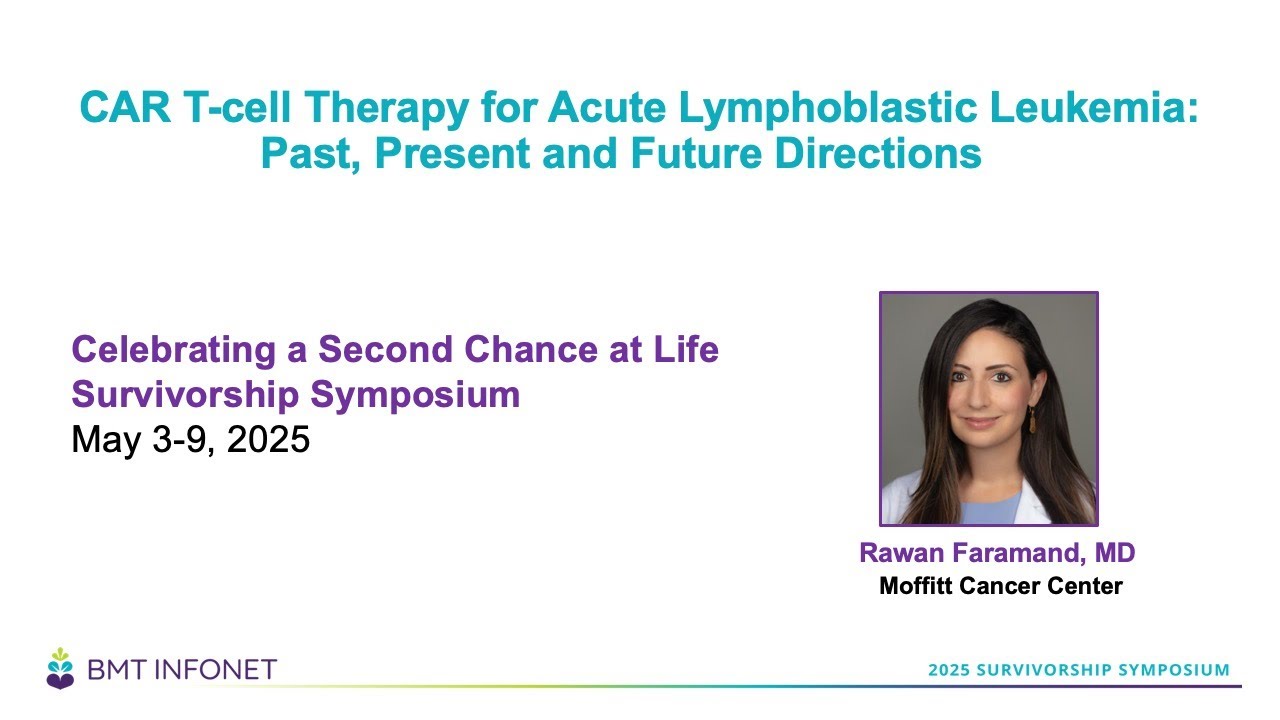What is CAR T-cell Therapy?
 Certain immune system cells, called T-cells, can normally identify cancer cells and destroy them before they multiply and cause disease. Sometimes, however, T-cells have trouble detecting cancer cells.
Certain immune system cells, called T-cells, can normally identify cancer cells and destroy them before they multiply and cause disease. Sometimes, however, T-cells have trouble detecting cancer cells.
CAR T-cell therapy removes T-cells from the blood and inserts a new gene into them to make it easier for the T-cells to fight cancer. The new cells are called CAR T-cells.
The CAR T-cells are then infused into the patient.
Diseases Treated by CAR T-cell Therapy
As of October, 2025, the U.S. Food and Drug Administration (FDA) has approved the following CAR T-cell treatments for patients who relapsed or did not respond to treatment after several rounds of therapy:
- ABECMA® (idecabtagene vicleucel; ide-cel) for adults with multiple myeloma
- AUCATZYL® (obecabtagene autoleucel; obe-cel) for adults with B-cell acute lymphoblastic leukemia.
- BREYANZI® (lisocabtagene maraleucel; liso-cel) for adults with::
- large B-cell lymphoma
- follicular lymphoma
- mantle cell lymphoma
- chronic lymphocytic leukemia
- small lymphocytic lymphoma
- CARVYKTI® (ciltacabtagene autoleucel; cilta-cel) for adults with multiple myeloma
- KYMRIAH® (tisagenlecleucel; tisa-cel) for:
- children and young adults up to 25 years old with B-cell acute lymphoblastic leukemia
- adults with large B-cell lymphoma or follicular lymphoma
- TECARTUS® (brexucabtagene autoleucel; brexu-cel) for adults with:
- mantle cell lymphoma
- B-cell acute lymphoblastic leukemia (ALL)
- YESCARTA® (axicabtagene ciloleucel; axi-cel)) for adults with:
- large B-cell lymphomas
- follicular lymphoma
The specific CAR T-cell immunotherapy available to you will vary depending on the medical center where you are receiving treatment and the characteristics of your disease.
In addition to FDA-approved CAR T-cell therapies, your treatment center may offer you an opportunity to participate in a clinical trial testing a new type of CAR T-cell therapy.
Research is underway to determine if patients with other types of cancer, such as acute myeloid leukemia (AML), Hodgkin lymphoma, some autoimmune diseases, and some solid tumors can also benefit from CAR T-cell therapy.
Does CAR T-cell Therapy Cure Cancer?
Although no one can predict with certainty whether CAR T-cell immunotherapy will cure you, it has helped many patients.
 CAR T-cell treatment may:
CAR T-cell treatment may:
- put you into complete remission (no evidence of disease) for many months or years
- put you into remission for a short period of time before your disease comes back
- put you into a partial remission (there is still evidence of disease, but the amount is less)
- not put you into remission at all
Talk to your doctor about how likely it is that CAR T-cell therapy will cure you or improve your health.
It is important that you are carefully monitored by your oncology team long-term to ensure that relapse and other issues that can arise are caught early and treated promptly.
Next Page: Find a CAR T-cell Medical Center
Watch a video about CAR T-cell therapy for lymphoma.
Click here to read the transcript of this video and download the slides.
Watch a video about CAR T-cell therapy for multiple myeloma.
Click here to read the transcript and download the slides.
Watch a video about CAR T-cell therapy for acute lymphoblastic leukemia (ALL)
Click here to read the transcript and download the slides.





